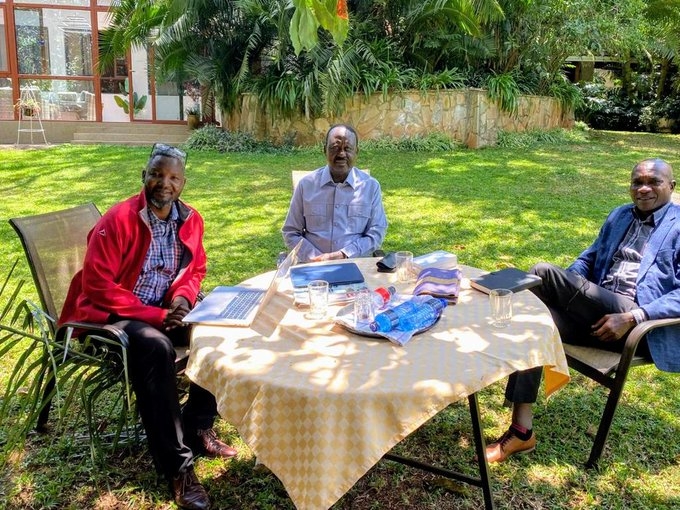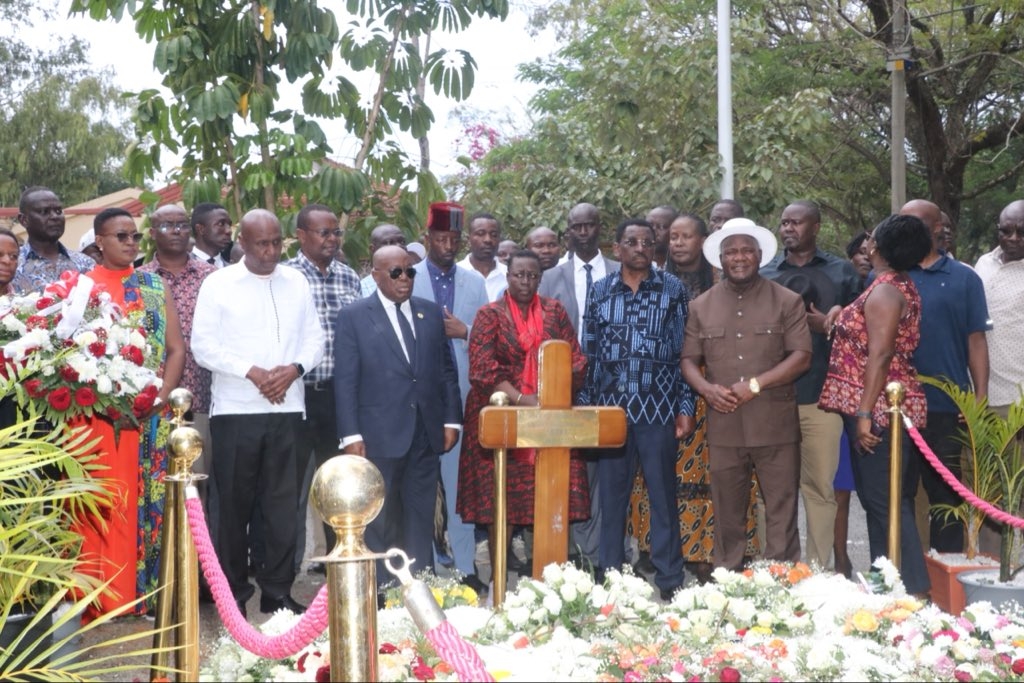Taxpayers will fork out billions of shillings in penalties following blunders by government officials running parastatals.
The latest disclosures by Controller of Budget Margaret Nyakang’o show that the state-owned agencies have been slapped with Sh21 billion penalties for failing to pay suppliers and contractors.
The amount is projected to go up - in the face of the tight fiscal space constraining government revenues.
Agencies under the Ministry of Roads and Transport accounted for a chunk of the penalties, being Sh15.7 billion.
Kenya Rural Roads Authority led the pack with penalties to the tune of Sh9.7 billion, as a result of Sh59 billion in unpaid bills.
Kenya National Highways Authority was for its part slapped with Sh4.9 billion over outstanding payments of more than Sh86 billion.
Nairobi Metropolitan Area Transport Authority had interest penalties of Sh754 million from a debt of Sh1.5 billion as of June 30, 2024.
Energy sector parastatals incurred Sh4.6 billion in penalties, including Sh3.6 billion in the case of National Oil Corporation.
Nock owed suppliers and contractors Sh9.2 billion as per the report for the period to June 30, 2024.
Kenya Power has to part with an extra Sh981 million for failing to settle Sh15.9 billion as payment for supplies and works.
Agencies in the sector owed their suppliers and contractors Sh50.8 billion, setting the stage for further penalties.
Ketraco, for instance, has not settled Sh21 billion while the Rural Electrification and Renewable Energy Corporation was yet to pay Sh2.7 billion in the review period.
Penalties were also charged on agriculture sector entities to the tune of Sh1.1 billion. The agencies owe a total of Sh30 billion.
Pyrethrum Processing Company was penalised Sh777 million, Sh219 million for Muhoroni Sugar and Sh134 million in the case of Chemelil Sugar.
Nyakang’o revealed that parastatals were yet to pay their suppliers as much as Sh379.8 billion, compounding the penalties problem.
The state corporations’ pending bills include payments due to contractors or projects, suppliers, unremitted statutory and other deductions and arrears of remittances to the Local Authorities Pension Trust.
The highest percentage of the pending bills - Sh235 billion, was for contractors/projects at 62 per cent, followed by pension arrears at 13 per cent.
COB data reveals that state agencies have not remitted Sh19 billion in Pay as You Earn, Sh640 million to the National Social Security Fund and Sh76 million to NHIF.
Unremitted sacco and staff loan deductions accounted for Sh2.5 billion and Sh2.3 billion respectively, even as pension arrears stood at Sh33 billion as of June 30, 2024.
Consumables and general supplies remained unpaid to the tune of Sh37 million while bills classified as 'others' amounted to Sh49 billion.
Former President Uhuru Kenyatta made it a policy on June 1, 2019, that accounting officers promptly settle pending bills without queries.
But despite the directives – enforced formally by circulars – the situation is yet to change and was widespread in the latest review.
Many suppliers and contractors have agonised over the inordinate wait for the government to settle bills.
Among the agencies with huge pending bills was Agriculture and Food Authority (Sh1.5 billion), Kenya Seed (Sh1.2 billion) and NCPB (Sh5 billion).
Also on the list are Rerec, which owes Sh2.7 billion, NHIF (Sh2.3 billion), Posta (Sh6.6 billion) and Sh5.3 billion in respect of the Kenya Broadcasting Corporation.
Auditor General Nancy Gathungu has severally flagged interest charged to projects over delayed payments as an irregular charge to public funds.
The auditor says procuring entities and the National Treasury should liaise to provide budgets and ensure timely disbursement of cash to ministries to facilitate prompt payment of pending bills.
“Interest on delayed payments represents an unnecessary additional charge to public funds beyond the projects’ cost,” the auditor said in a previous report.
Further, a delay in the completion of a project is an indication that the citizens may not obtain its value for money.
Despite the alarm, universities' pending bills stood at Sh66 billion, with Kenyatta University accounting for the highest portion at Sh12.2 billion.
The University of Nairobi was second with an unpaid Sh11.7 billion.
Other big debt portfolios were held by the Technical University of Kenya which was yet to settle Sh8.8 billion.
Moi University has Sh7.8 billion pending bills for the period in review, Sh8.3 billion in respect of JKUAT and Sh7.9 billion in the case of Egerton University.
KWS owed suppliers Sh1.5 billion, Tanathi (Sh5.9 billion), Kenya Revenue Authority (Sh7 billion), Sh5.1 billion in the case of Lake Basin Development Authority and Kenya School of Government (Sh1 billion).
Two public universities have also been slapped with interest on delayed payments.
South Eastern Kenya University owes Sh3.4 million while Kibabii University's debt stands at Sh7.7 million.
Kenyatta National Hospital, the COB data shows, was slapped with penalties amounting to Sh33 million as interest over the delayed settlement of a Sh2.4 billion bill.
A committee that was expected to unlock the payments is seen to be taking forever to conclude the review and okay payment of eligible bills.
The committee, chaired by former Auditor General Edward Ouko, has not set clear timelines for the assignment, which largely concerns historical pending bills.
As the situation persists, Ministries, State Departments and Agencies continue to pile up pending bills.
The MDAs were yet to settle Sh136 billion, as at June 30, of which Sh100 billion accounted for unpaid supplies and Sh35 billion for development projects.
Of these, the Defence Ministry was among the highest at Sh25 billion, while President William Ruto’s office owed Sh13 billion in respect of NMS projects and Sh12 billion in respect of Crops Development department.
Deputy President Rigathi Gachagua’s office had not paid Sh1.4 billion, NYS (Sh14.6 billion), TSC (Sh3 billion) and Parliament (Sh1.6 billion).
Also on the list are NLC (Sh1.5 billion), Judiciary (Sh783 million), Wildlife (Sh2.8 billion) and Transport (Sh6 billion).
Other departments that are owed include Medical Services (Sh5.6 billion), Treasury (Sh4.6 billion), Police (Sh7.2 billion), Correctional Services (Sh4.5 billion), Immigration (Sh3.1 billion), Interior (Sh2.4 billion) and Sh1.9 billion for the case of Foreign Affairs.
Ideally, pending bills are supposed to be a first charge, hence the unsettled amounts risk distorting the entities' budgets when not settled promptly.












